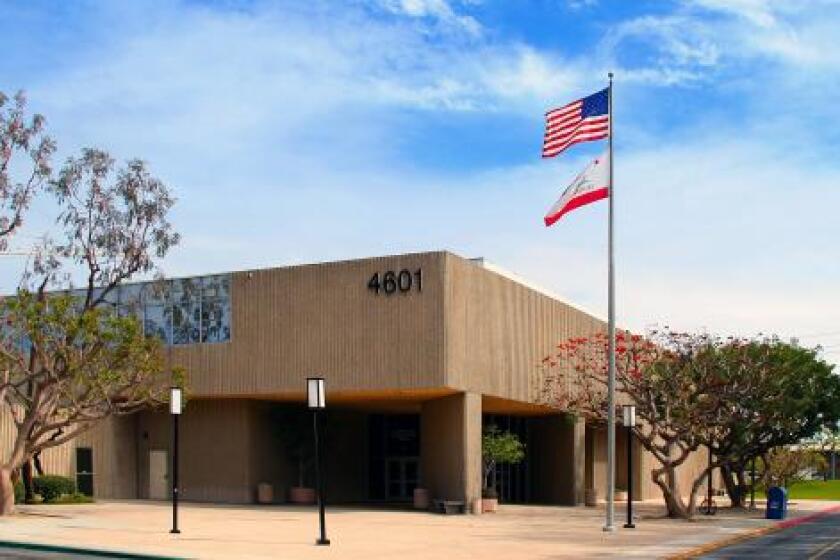Trees dying at Bolsa Chica
- Share via
A grove of eucalyptus trees are dying along the northern edge of a tidal pocket in the Bolsa Chica mesa — on that the experts agree. But what’s killing the trees is not so clear.
The experts also agree that the effort to restore the $147-million Bolsa Chica wetlands is not working as planned. Local environmental activist Mark Bixby believes that saltwater from the restoration project is killing the trees, but other officials aren’t so sure.
Bixby has observed the trees slowly dying off since mid-July. At least three trees are dead and a fourth is dying on the Parkside Estates property, Bixby said. In all, dozens of the trees are dead or dying on the 42-acres in the northeast corner of the wetlands.
Another group of eucalyptus trees on the Hearthside Property are also showing signs of stress, with the leaves turning brown, Bixby said.
The pocket’s tidal flow was restored with saltwater from the Outer Bolsa Bay along Pacific Coast Highway, which in turn is replenished by the ocean entering through Huntington Harbour.
The area where the trees are dying has been designated as an environmentally sensitive habitat. The trees are home to raptors and other bird species.
Now the ground is getting soggy in some places, and as the trees die, they topple over, Bixby said.
The recent opening of the Bolsa Chica tidal inlet to the Pacific Ocean after more than a century is part of the same wetlands restoration efforts as the water entering into the tidal pocket.
“It appears to us that most of the trees adjacent to that tidal pocket are being adversely affected by the introduction of sea water into that pocket,” said Art Homrighausen, principal biologist with LSA Associates Inc., which works with Hearthside Homes on the Brightwater residential development planned in the Bolsa Chica area.
Efforts to save the eucalyptus trees aren’t expected to succeed.
“Because they have altered the conditions they were in,” Homrighausen said.
Higher water levels in the Bolsa Pocket during the wetlands restoration efforts might have contributed to the trees dying off, said Bob Hoffman, a representative with the National Marine Fisheries Service.
But the trees were already dying before the Bolsa Pocket was filled with saltwater, Hoffman added. “It’s very difficult to attribute what caused the death of the trees — fluctuation in groundwater or the quality of groundwater.”
Hoffman also pointed out the eucalyptus trees “basically don’t belong there.” A non-native species like eucalyptus shouldn’t be planted there in the first place, he said.
But the trees provide a habitat for raptors, Bixby said.
“For a healthy ecosystem, you need the adjacent tree growth,” Bixby said.
If the trees are gone, the raptors won’t feed on other small birds, lizards, mice, gophers, small bunnies and squirrels. “If you lose the raptors, then those species’ population increases, they start eating more of the vegetation, and you get erosion problems, especially on the slopes in the mesa,” Bixby said.
And there’s another problem beyond the dying trees that’s concerning developers about the tide flow.
Shea Homes, which owns the Parkside Estates property, is concerned about the saltwater rising higher and flooding homes.
Shea spokesman Laer Pearce is worried that “nothing is holding the saltwater back from our neighbors.” Shea Homes has alerted the county and state about the danger of flooding if a present makeshift road, acting as a levee, breaks down.
Bixby also has this concern: He wants to save the wetlands from being excessively used by owners with unleashed dogs and bikers riding off the trails.
“In the long run, that can be as destructive as paving over the wetlands,” he said.
All the latest on Orange County from Orange County.
Get our free TimesOC newsletter.
You may occasionally receive promotional content from the Daily Pilot.



